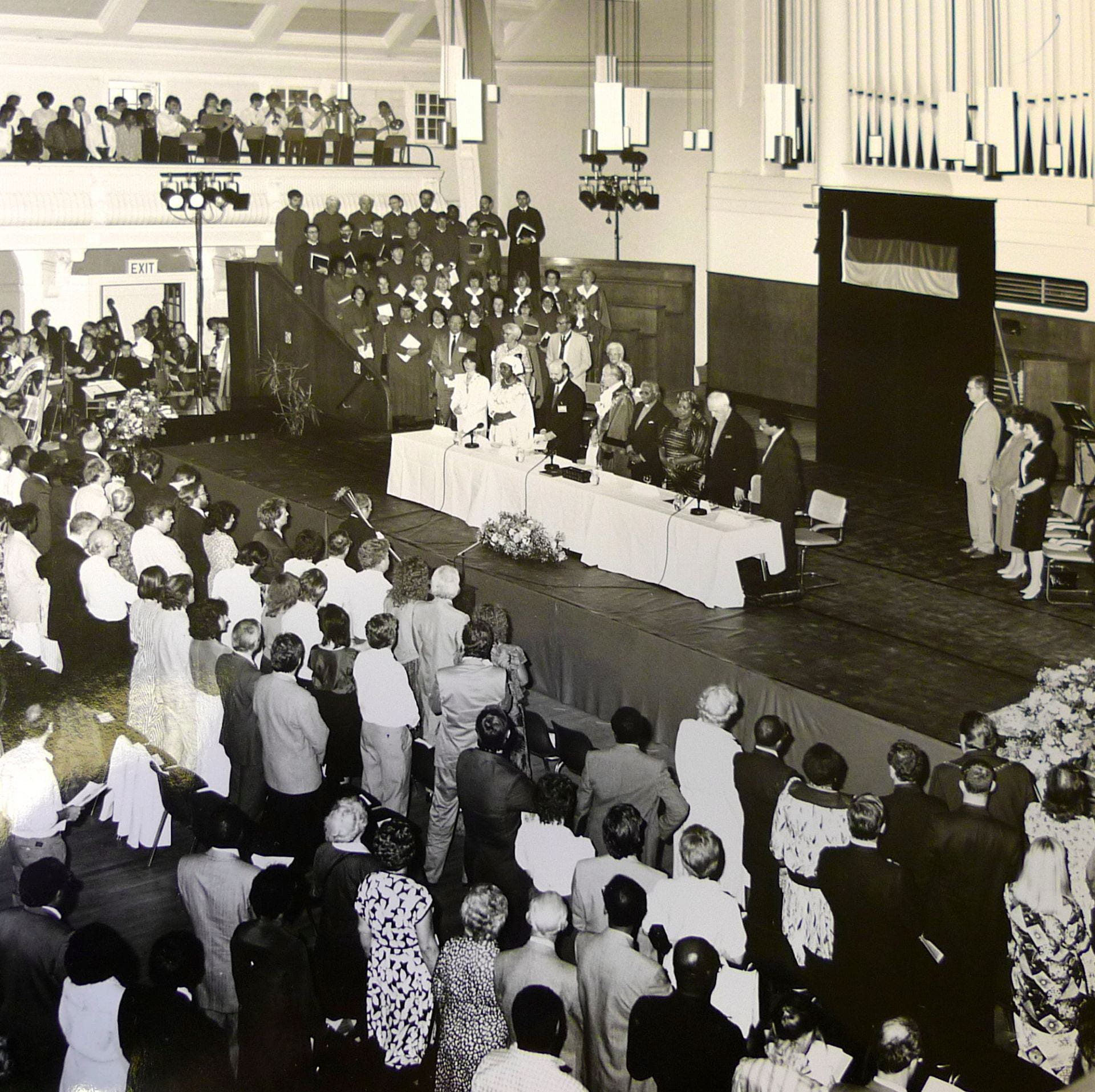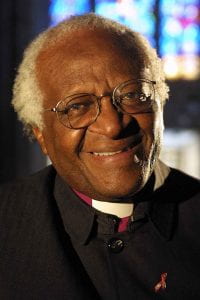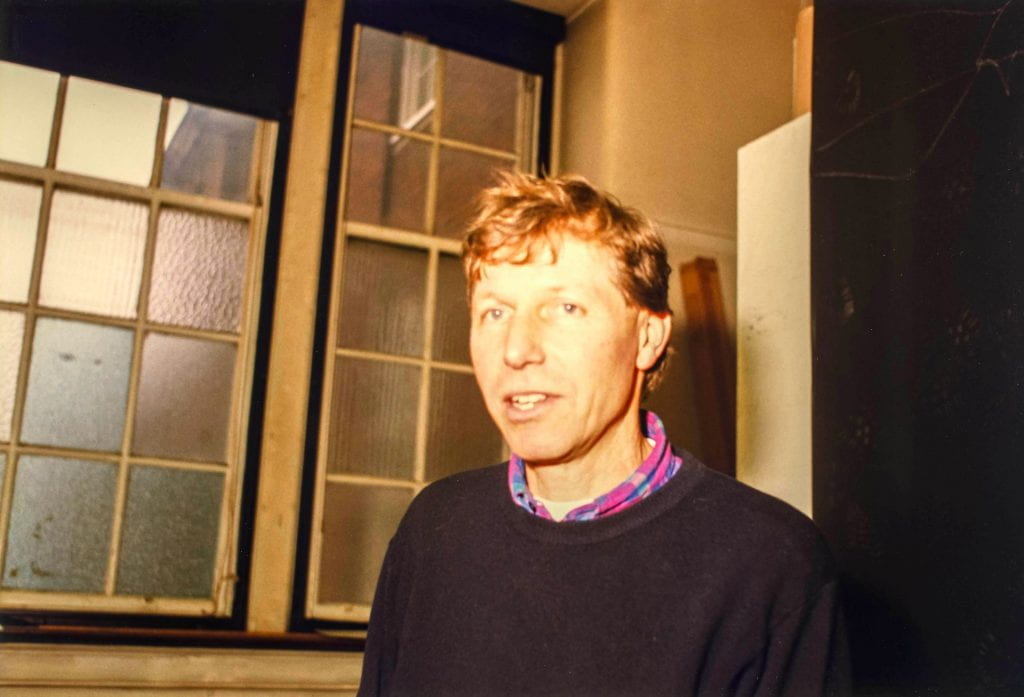
The Admission of the Most Reverend Desmond Tutu as an Honorary Freeman of the London Borough of Lewisham, Great Hall, Goldsmiths’ College 4th May 1990. Image: Copyright Goldsmiths archives.
Sir Desmond Mpilo Tutu is the world’s most revered living anti-apartheid and human rights activist.
He was the first black African to hold the position of Bishop of Johannesburg and then Archbishop of Cape Town.
He was awarded the Nobel Peace Prize in 1984 for his advocacy and activism of non-violent opposition and protest against the South African apartheid regime. In his acceptance speech he said:
“This award is for mothers, who sit at railway stations to try to eke out an existence, selling potatoes, selling mealies, selling produce. This award is for you, fathers, sitting in a single-sex hostel, separated from your children for 11 months a year… This award is for you, mothers in the KTC squatter camp, whose shelters are destroyed callously every day, and who sit on soaking mattresses in the winter rain, holding whimpering babies… This award is for you, the 3.5 million of our people who have been uprooted and dumped as if you were rubbish. This award is for you.”
His steadfast and dignified campaigning for the rights of Black South Africans is credited with playing a key role in persuading the apartheid regime in South Africa to relinquish power, release Nelson Mandela and hold democratic elections in 1990.
Goldsmiths, University of London hosted Archbishop Tutu’s return to London to receive the freedom of Lewisham in May 1990.
Students and staff created the music and poetry which celebrated his achievements in bringing about peace and reconciliation.
The South African cleric and theologian’s links with Lewisham had been and remain affectionate and meaningful.

